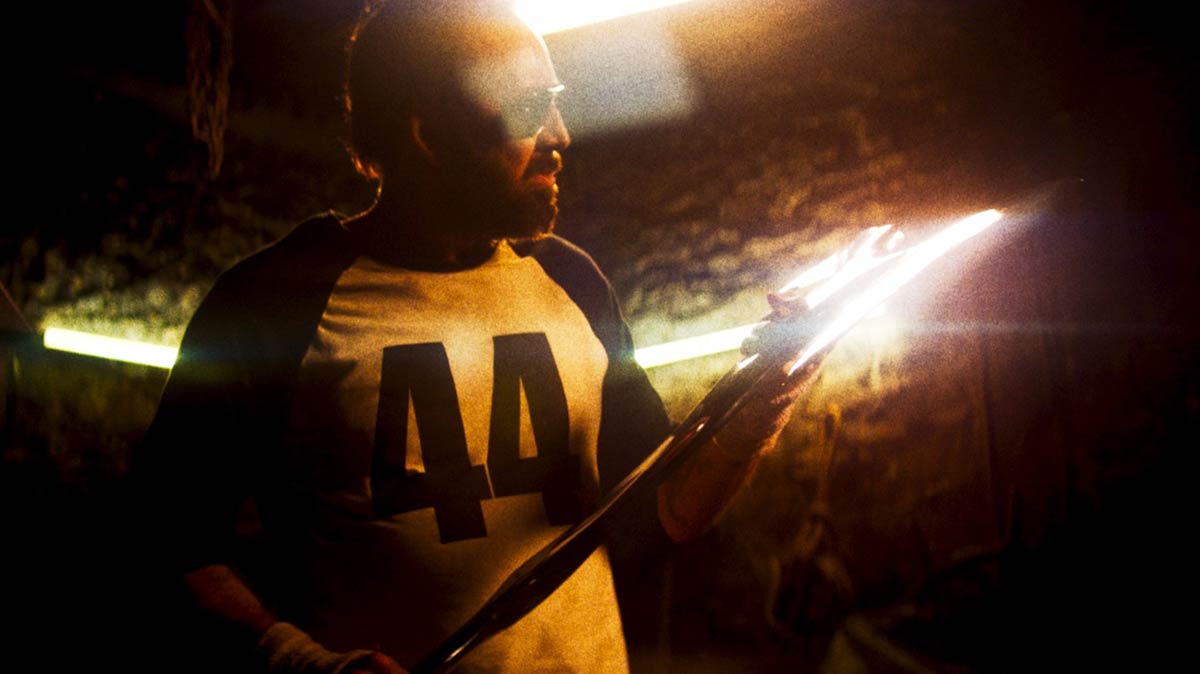There may be no bigger disconnect in Hollywood than the public perception of Nicolas Cage as an unhinged madman and the studied, thoughtful approach he brings as an actor. In fact, when we look back at his career, we may find that it was the infamous “Nic Cage Losing His Shit” video by Harry Hanrahan—not any of his countless film performances before or since—that set the mold for Cage’s celebrity. In some ways, this video was a gift; it introduced many moviegoers to underseen classics like “Vampire’s Kiss” and established Cage as an institution unto himself. Even years later, it’s amusing that unearthed Cage clips—like the one from “Never On Tuesday” that recently went viral—can still capture our collective imagination.
READ MORE: First Look At Nic Cage’s Upcoming Horror Film ‘Color Out Of Space’
But no Nicolas Cage performance, big or small, will ever be as engrossing as his sit-down interviews. Listening to Cage talk about cinema—especially genre cinema that pushes the boundaries between arthouse and grindhouse—is mesmerizing, and thankfully, he has been recognized more in recent years as an important student of Hollywood history as well as an impressive performer. So when I saw that Cage had recently sat down with IndieWire to discuss everything from Ingmar Bergman to torture porn, well, yeah, that’s an article I’m going to read.
The big highlight is Cage’s fascination with Ari Aster, the “Hereditary” and “Midsommar” filmmaker. “Ari Aster, to me, is an event,” Cage told IndieWire Executive Editor Eric Kohn.“If you look at ‘Hereditary’ and ‘Midsommar,’ so much thought goes into them. They’re uniquely different, but you can tell that they come from the same mind. He’s a real student of film.” For Cage, one of the most impressive elements of the film is how thoroughly Aster recreates the experience of watching an Ingmar Bergman film. “I saw those Bergmanesque shots. I remember thinking, ‘This is like Bergman.’ Then I heard a podcast where he was talking about the closeups in ‘Persona,’ and I’d just gone through my Bergman kick, so I was like, well, this is really someone willing to explore and try new things in cinema.” In the interview, CAge also compares Aster’s work to Brian De Palma‘s early films like “Sisters“ and “Phantom of the Paradise,” indicating that Aster is a filmmaker he’d like to work with in the future.
READ MORE: Ari Aster Tackles Grief, Gaslighting and Cults in ‘Midsommar’
While Aster is a sometimes-contentious figure within the horror community—his own insistence on avoiding the horror label for his own work led to the use of the much-derided “elevated horror” phrase to describe his movies—his sensibilities towards the genre do seem to line up well with those of Cage. When discussing Aster’s perspective on the horror genre, Cage pointed to another contentious subgenre of horror he avoids with a passion. “Horror is fine, you can be very creative with that. The thing I really don’t like is what they call ‘torture porn. If you’re just watching some woman get cut up, that’s really not for me. It needs to have a reason there, a story, that propels the characters, an emotion connected to it. I would probably have to pass on just gratuitous violence.”
With the H.P. Lovecraft adaptation “Color Out of Space” on tap for the Toronto International Film Festival, and “Mandy“ a breakout winner from 2018, Cage continues to put his money where his mouth is. Here’s hoping he continues to have opportunities to star in his brand of horror for as long as he sees fit.
Click here for our complete coverage from this year’s Toronto International Film Festival.





